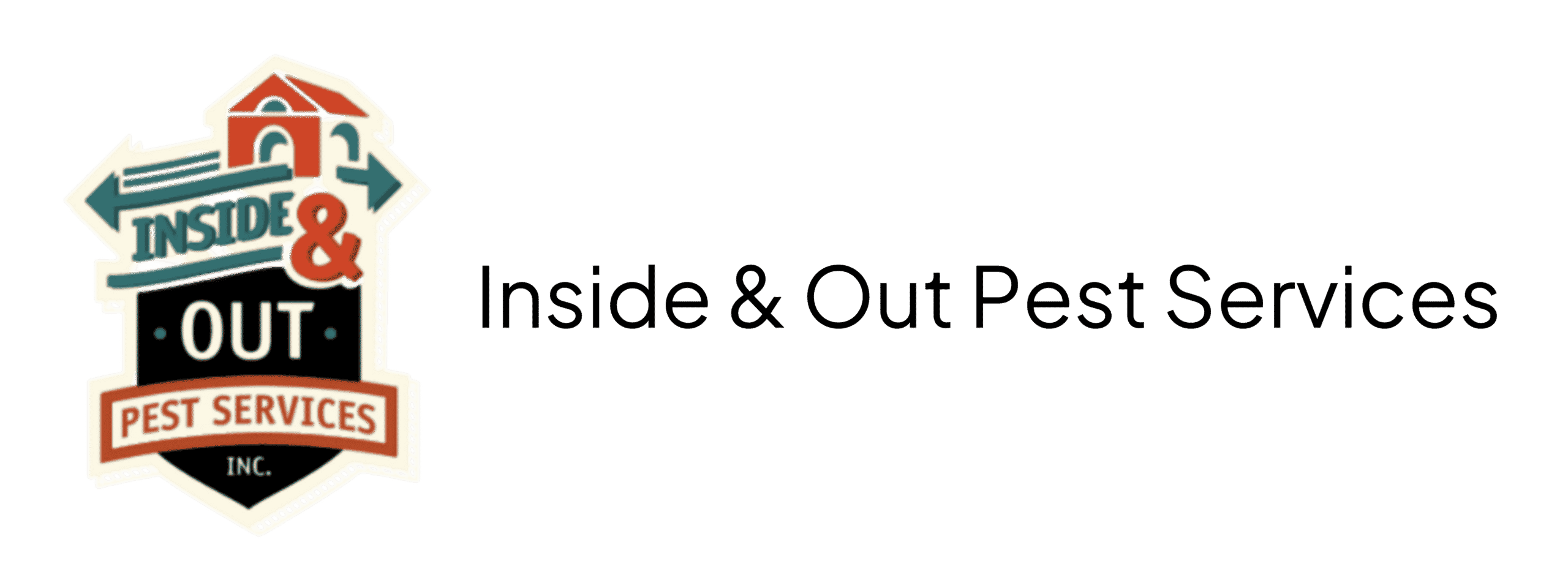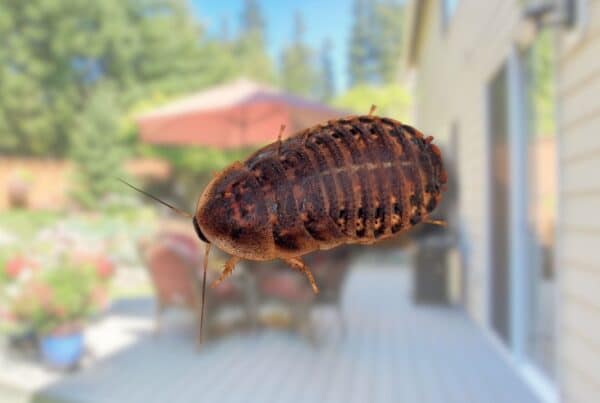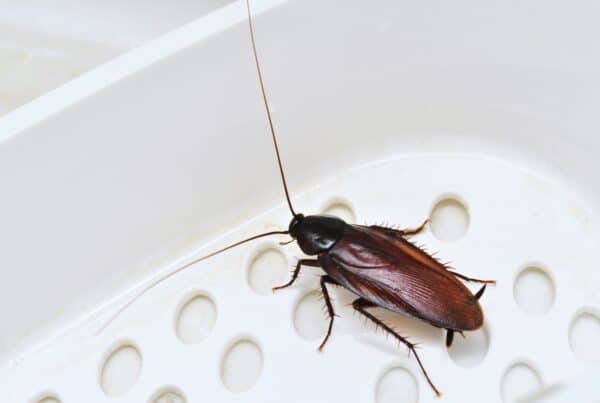Seeing cockroaches in your home is unsettling, and seeing one take off and fly can be downright terrifying. But can all cockroaches actually fly, or is that just a rumor?
The truth is, not every cockroach can fly. Some only glide short distances, while others are completely grounded. Knowing which types of cockroaches fly, why they do it, and how to keep them out of your home.
Why Some Cockroaches Fly and Others Don’t
Cockroaches are an ancient insect group with over 4,500 known species worldwide, but only about 30 species are found near human dwellings. Out of those, only a few have wings strong enough to sustain flight.
Cockroaches that can fly typically use it as a survival skill. They may fly to:
- Escape predators
- Move quickly between food and water sources
- Relocate in hot, humid weather
But most cockroaches prefer running. In fact, many species are faster on foot than in the air.
Cockroaches are among the fastest insects, able to cover up to 50 body lengths per second.
For comparison, that would be like a human running more than 200 miles per hour.
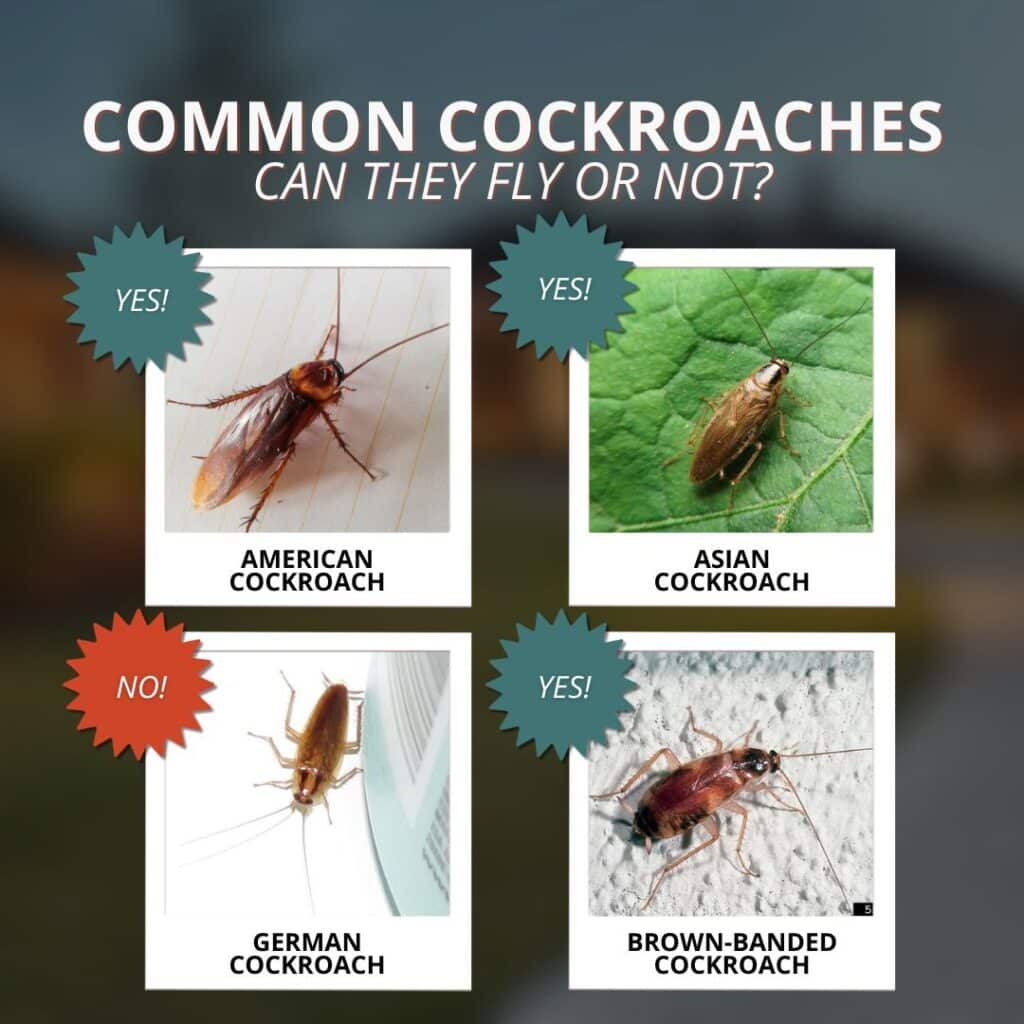
Common Types of Cockroaches: Can They Fly?
Only a handful of cockroach species are considered major household pests in the United States. Not every cockroach you see indoors will take to the air, but a few do have the ability.
Knowing which types can fly makes it easier to identify what you’re dealing with.
American Cockroach
- Reddish-brown and up to 2 inches long
- Has fully developed wings and can fly short distances
- Often found in sewers, crawl spaces, and commercial buildings
Asian Cockroach
- Nearly identical in appearance to the German cockroach but slightly lighter in color
- Strong fliers, often attracted to lights at night, and can cover several feet in a single flight
- Typically live outdoors in mulch, lawns, or shaded areas, but can move inside through open doors and windows
German Cockroach
- Light brown with two dark stripes behind the head
- Has wings but does not fly
- Extremely fast on foot and the most common indoor species, often in kitchens and bathrooms
Brown-Banded Cockroach
- Smaller, about half an inch long, with light bands across the wings
- Males can fly readily; females don’t usually fly
- Prefers warm, dry areas and is often found in higher locations such as cabinets and ceilings
Why Flying Cockroaches Head Indoors
Most cockroaches live outdoors, but they often end up inside homes for food, water, and shelter.
Flying cockroaches are more likely to enter through open doors, windows, or vents because of their ability to cover ground quickly.
Reasons they may enter homes include:
- Weather shifts: Heavy rain or extreme heat drives them inside for shelter
- Light attraction: Many flying species are drawn to outdoor lighting and sneak inside
- Food availability: Unsealed garbage, pet food, or crumbs can lure them in
- Moisture sources: Leaky pipes, bathrooms, and kitchens are common hot spots
The Real Risks of Cockroaches
Flying or not, cockroaches are more than just creepy. They pose health and sanitation risks to households.
- Allergens: Cockroach droppings, saliva, and shed skin can trigger asthma and allergies. The CDC lists cockroach allergens as a major contributor to asthma in children living in urban areas.
- Disease spread: While cockroaches do not directly transmit disease like mosquitoes, they carry bacteria such as Salmonella and E. coli on their bodies, contaminating surfaces and food.
- Rapid reproduction: German cockroaches, for example, can produce thousands of offspring in a single year. Even one or two sightings indoors can quickly turn into an infestation.
Why DIY Control Rarely Works
Homeowners often try sprays, foggers, or traps, but these methods only kill a fraction of the population. Flying cockroaches can easily avoid surface sprays by moving into wall voids, attics, or outdoor nesting areas.
DIY treatments usually fail because:
- They do not target hidden nesting sites
- They fail to eliminate eggs or developing nymphs
- They allow surviving roaches to repopulate within weeks
Professional pest control addresses the entire colony, not just the insects you can see.
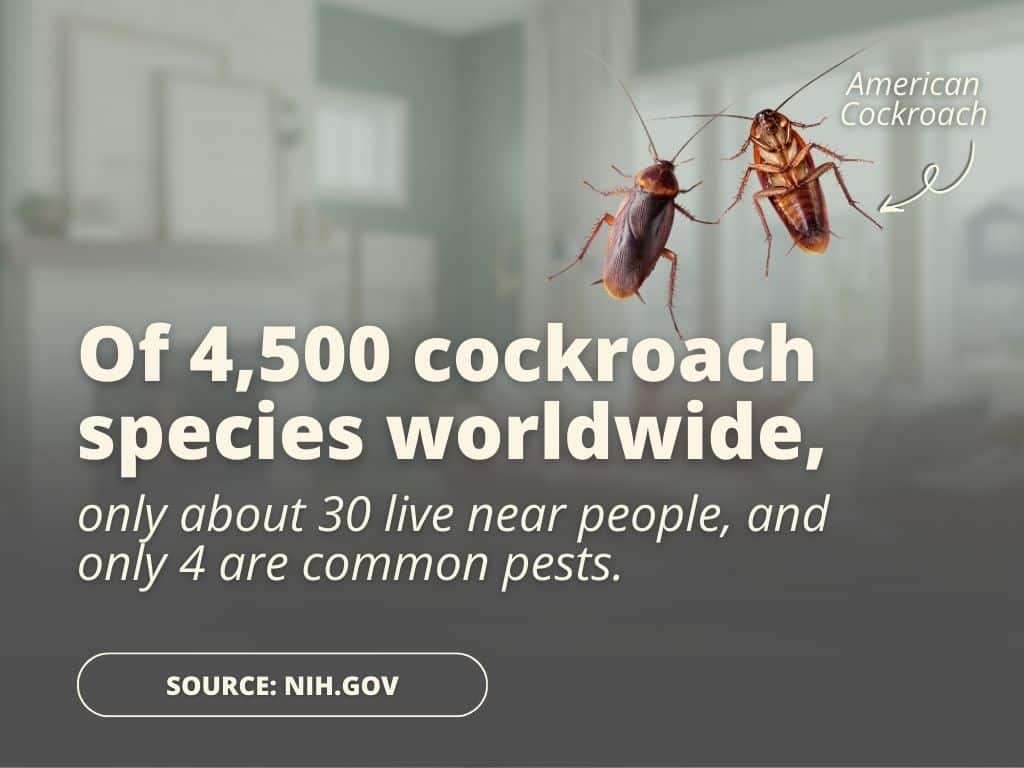
When to Consider Professional Pest Control
Inside & Out Pest Services offers comprehensive cockroach control that is designed for Florida’s climate and pest pressures. Our approach focuses on eliminating current infestations and preventing future ones.
Services include:
- Full property inspection to locate nests and entry points
- Family- and pet-safe treatments tailored to each species
- Crack and crevice applications to reach hidden areas
- Exterior perimeter protection to block future infestations
- Seasonal service plans for ongoing prevention
By combining targeted treatments with preventive strategies, we ensure cockroaches, including flying species, do not make your home theirs.
Prevent Cockroaches from Taking Flight Into Your Home
Even with professional service, homeowners can take steps to make homes less attractive to cockroaches.
- Seal cracks and gaps around windows, doors, and foundations
- Store food securely in sealed containers
- Fix leaks and reduce moisture in kitchens, bathrooms, and laundry areas
- Keep trash sealed and removed regularly
- Limit outdoor lighting at night to reduce attraction from flying species
Consistency is key. A clean and well-sealed home is far less likely to host cockroaches of any kind.
Other Questions Homeowners Are Asking
Why do cockroaches fly toward lights?
Species like the Asian cockroach are attracted to light sources, especially at night. This is why they’re often spotted near patios and outdoor fixtures.
Are flying cockroaches more dangerous than non-flying ones?
Not really. Flying cockroaches are more startling, but all roaches carry the same health risks. The key concern is infestation, not flight ability.
What should I do if I see a flying cockroach in my house?
Seeing one likely means more are nearby. Catching or spraying a single roach will not solve the problem. The best next step is to schedule a professional pest inspection.
When to Call a Professional
If you’ve seen cockroaches, flying or otherwise, it’s time to act quickly. Cockroaches reproduce fast and hide in places homeowners can’t easily reach. The sooner you get professional help, the easier and more affordable it is to control the problem.
At Inside & Out Pest Services, we help Jacksonville homeowners with:
- Cockroach control and prevention
- Ant, termite, and spider treatments
- Full-service pest protection tailored to Florida homes
Conclusion
Not all cockroaches fly, but they can all quickly make their way indoors, especially in Jacksonville’s hot and humid climate. Whether they glide, crawl, or swarm at night, cockroaches are a health risk and should never be ignored.
Professional pest control is the best way to eliminate infestations and prevent new ones. With the right inspection, treatments, and preventive steps, you can keep cockroaches, flying or not, out of your home for good.
